
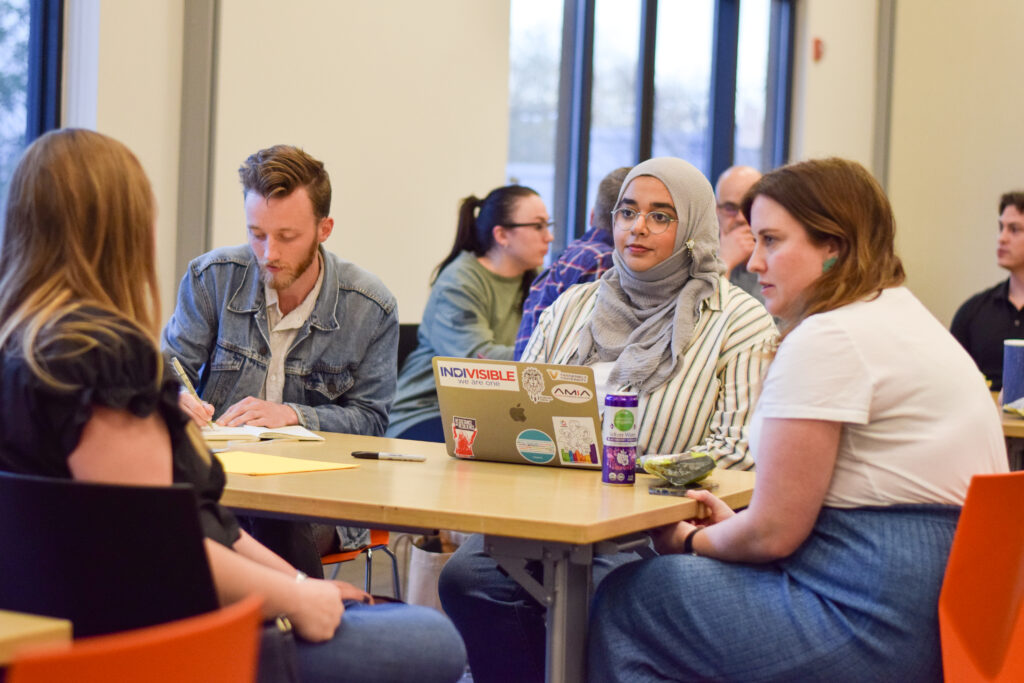
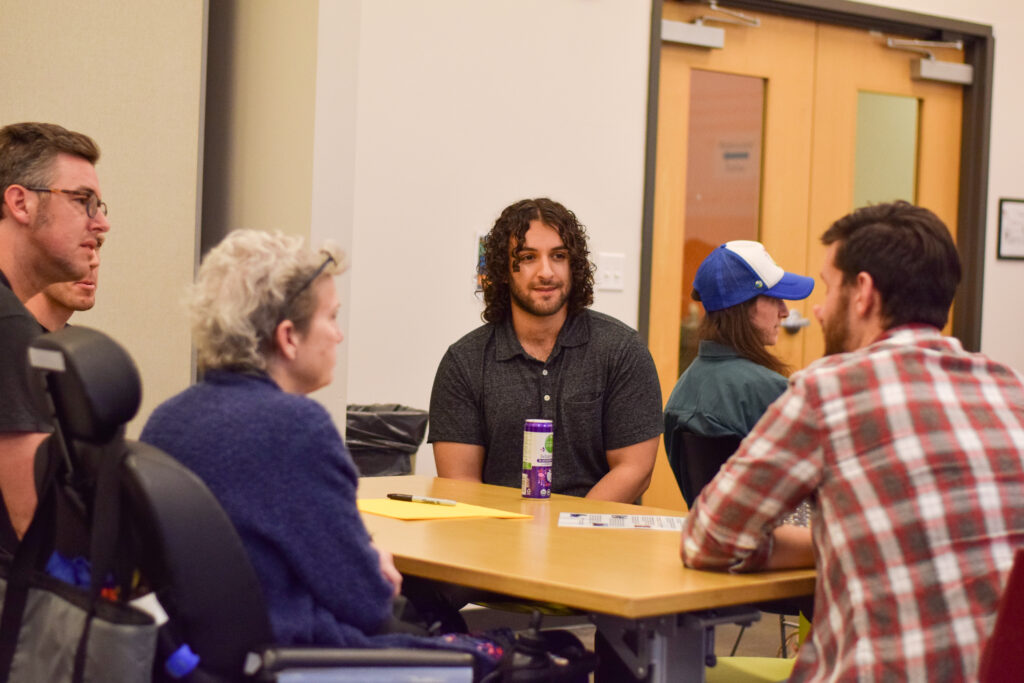
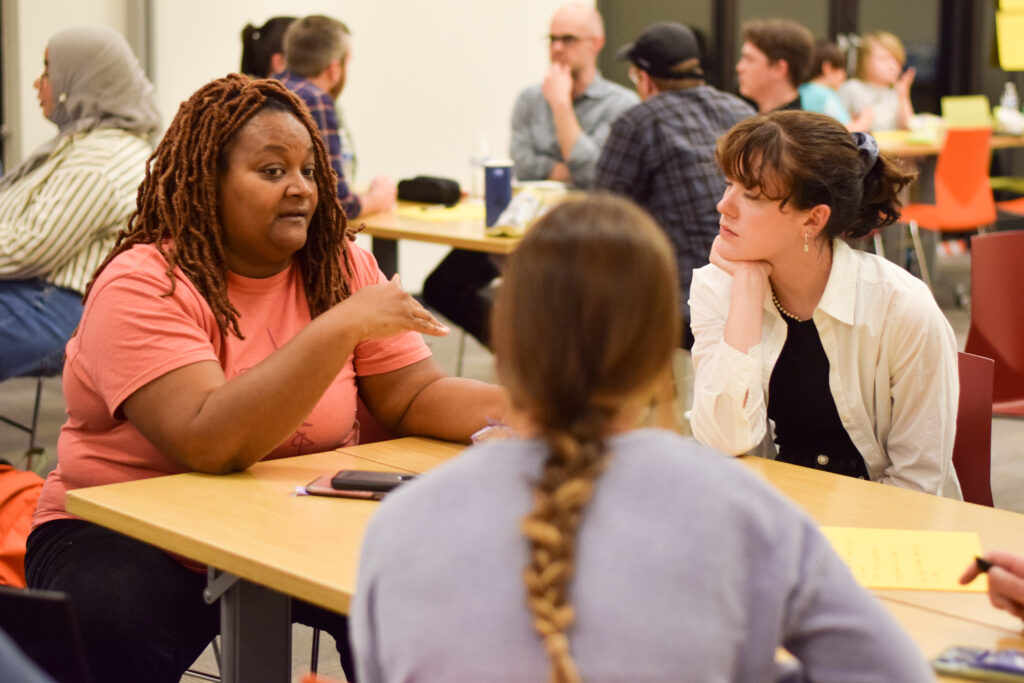
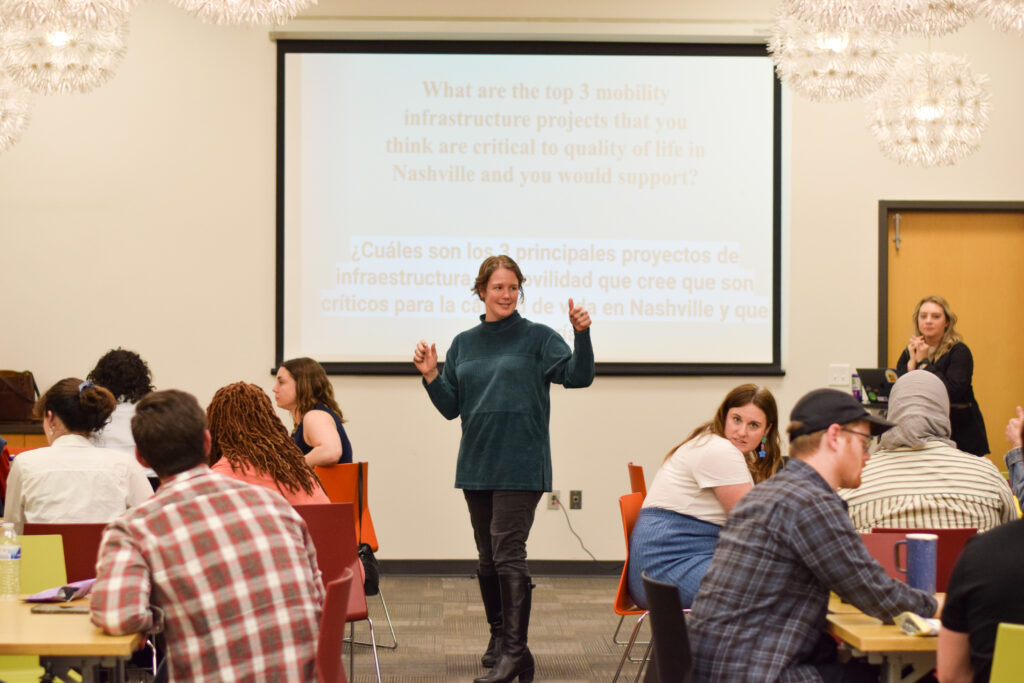
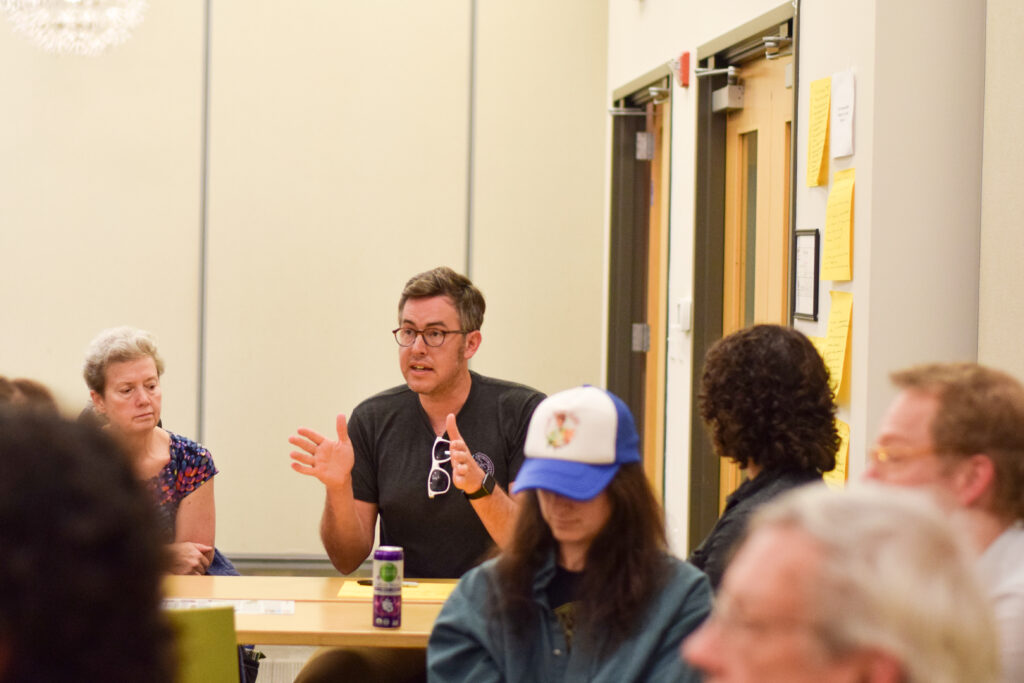
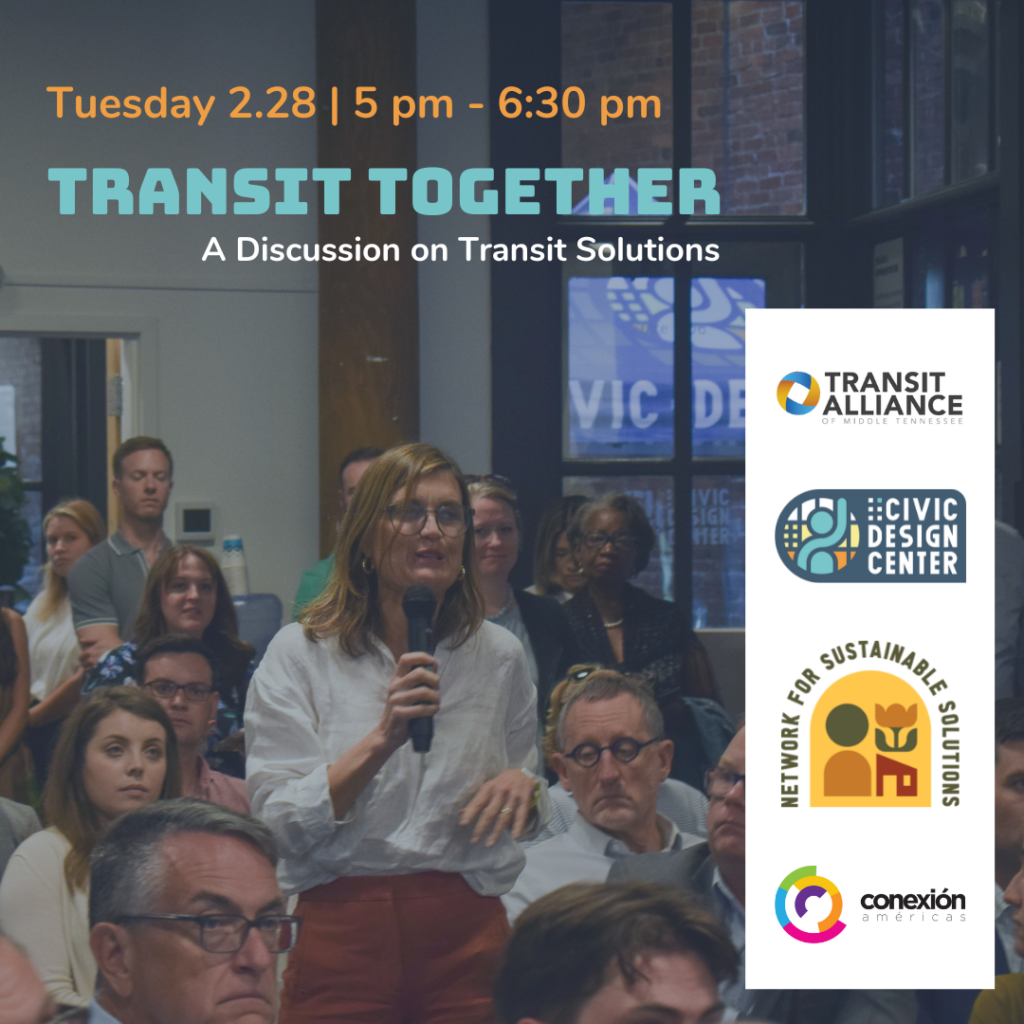
RESULTS
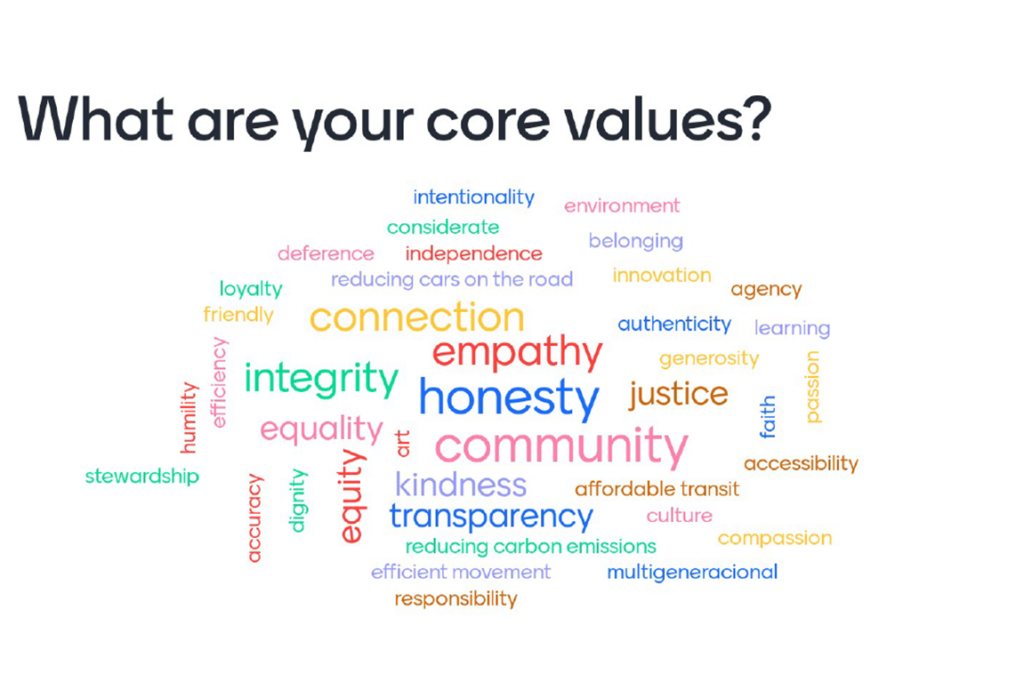
What immediate mobility challenges are you facing today?
- Lack of bus route options, poor route design, inconvenient schedule, and unreliable
- Currently, pedestrians/bikers are responsible for their safety, rather than vehicles/drivers
- Lack of sidewalks /walkability factor is lacking and it leads to unsafe conditions
- Connectivity to bus stops and routes is lacking
- Signage: lights/signals, and road marking need to be clearer
- Lack of ADA options/consideration
- Traffic and traffic flow/ congestion during commute is extreme
- Bike lanes are blocked/ poor maintenance of bike lanes
- Lack of multimodal awareness
- Lack of accessibility to transit information
- Gentrification/Development pushing people further out of the city. (Displacement)
- Not bringing information and conversation to the larger community
- Language accessibility: No bus announcements, signage, translation support for languages other than English
- Lack of lighting
- Cars are going too fast
- Lack of coordination between crosswalks and traffic lights
- Lack of pedestrian islands + signage
- Out of county transportation
- Rideshare companies are not required to carry mechanical
- Lack of attention to pikes (state owned highways)
- More access to STAR is desired
- Lack of dedicated lanes
- Faster to roll on a bus than using an access bus
- Construction sites are impairing mobility
- Poor road quality for bikes and cars (immense amount of potholes
- Disconnectivity of infrastructure. It is not reliable right now.
- We are car dependent and there is a hyper-priority on car transportation.
- Arterial road design/bottlenecks
- Lane paint needs updating
- Lack of basic pedestrian infrastructure and safety
- Lack of good local transit within communities
- Lack of varied complex destinations within communities
- Gas is expensive + there are few public transit options available
- Poor access to suburbs/nearby communities
- Parking and parking prices (expensive and confusing)
- Lack of knowledge on participatory grant and how to use it for transit
- Unsafe walking and at downtown hub
- Lack of late night transit access for everyone + visitors
What are the top 3 mobility infrastructure projects that you think are critical to the structure/quality of life in Nashville and that you would support?
- Dedicated + protected core bike lanes
- 80% Sidewalk coverage + more crosswalk
- Light Rail- real mass transit would be ideal
- Rail service- increase WeGo Star, and add new lines, make it more modern
- Transit should be the fastest way to get to and from downtown (to games, events, airport connectivity) Donelson > Airport > Murfreesboro Pk > Nolensville Pk
- Protected bike lanes and pedestrian islands on every street
- Streetcar/trolley system (or a more modern version)
- More bus routes, increased frequency
- Dedicated pedal tavern lanes
- More complete streets
- Traffic cameras vs. traffic enforcement (speed limit)
- More busing (hubs, larger routes, dedicated lanes, improving route times)
- More park + rides
- Dedicated funding for transit/multimodal transportation
- Traffic calming tools/ roundabouts
- More pedestrian-only zones
- More fleets of shared mobility, especially e-bikes
- Colorful bike lanes and sidewalks themed by neighborhood
- Increased pedestrian infrastructure (specifically connecting bus stops/ sidewalks)
- Increased connectivity in general
How does transportation affect housing and affordability?
- Commuting between your housing, work, and activities is difficult due to limitations on transit
- Owning or not owning a car can dictate where you work (have to live closer w/ no transit available) / you have to commute longer to live somewhere affordable
- Affordable housing only exists where transportation is limited/non-existent
- Better transportation can lead to higher housing costs (increased property taxes)
- Community times are extensive as living closer to work costs more. Time is money and quality of life.
- If you can’t rely on public transportation, your employment/income opportunities are very limited
- ‘Hidden’ costs of car ownership (parking space, parking lots, etc.) often not considered
- Train/transit lines can affect housing around it
- Car dependant road design is incompatible with housing
- Being in an area with public transportation is expensive to develop due to it being limited
- Car dependant transportation develops housing that cannot be scaled up to increase affordability
- Lateral moves are too expensive without viable transit
- New transit corridors can lead to gentrification, higher rents, etc. But can also lower the cost of living (car ownership, accessibility to employment)
- Land use/zoning, specifically single-family houses, raise the cost more than transit
- Public transportation prices are going up
- Lack of public transit education/stigmas
- Housing construction prevents transportation
- Garage space (adds $ value to housing) to store a car is often not needed
- Paying premiums
- Question: How can we increase access without decreasing affordability?
- Sidewalks and bike lanes are currently amenities
- They draw people to the area
- They are in places that are generally less affordable
- Improves transit can allow for increased density
- Complicated cycle of increased density + effective transportation: which comes first?
What questions should we be asking?
- Who is not in the room? And why? / What other perspectives/ experiences are we missing?
- What would it take for people to give up their cars? / How do we shift from being car-dependent?
- How do we honor intentional design?
- How do we improve transit sustainability while considering the environment?
- Are we considering kids and youth in our ideas/ solutions?
- Why do we have so many cars?
- How do we get people to consider using public transit?
- Idea: Marquee large events like soccer, hockey, concerts making it easier to get to using transit
- How much are {you} willing to spend?
- What are you willing to do to make this happen? (Promotion/Marketing/Narrative/Telling the Story)
- How do we remove the entitlement to drive and park directly in front of wherever you go?
- Do {you} experience social inequities?
- How does race affect transit investment?
- How much taxes are you willing to pay for infrastructure?
- How do you tell this story?
- Are you asking the right audience?
- Why are people disengaged?
- What are the low-stakes/high-impact projects that create success? Examples?
- What are some trusted names + brands to align with?
- Where’s the $$? (for transit)
- How are mayoral candidates going to take this issue into account?
- What is your why for public transit?
- How do we make it more attractive to us all?
- How do we get the most diverse input in planning?
- What gets people to show up to these discussions?
- Why do you take a car over a bus?
- What are some short-term wins we could achieve?
- How do we not reinvent the wheel in development?
- How to work smarter, not harder
- What can be kept from previous plans?
